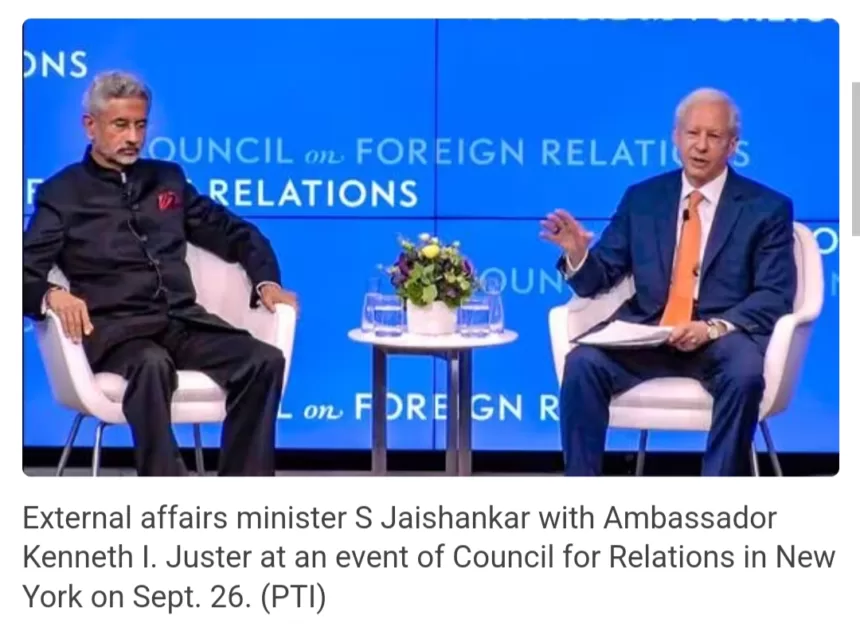In a thought-provoking discourse, India’s External Affairs Minister, S. Jaishankar, emphasized the burgeoning convergence of interests between India and the United States during an event hosted by the Council of Foreign Relations in New York. Jaishankar underscored the transformative nature of this bilateral relationship and outlined key domains of cooperation.
Jaishankar initiated his address by highlighting a fundamental shift in the United States’ global posture. He observed that the U.S. was adapting to a multipolar world, a recalibration prompted by various factors, including the enduring effects of its involvement in Iraq and Afghanistan. He asserted that the global power dynamics had evolved significantly over the last decade, with the world becoming more democratic and opportunities proliferating across the globe.
The U.S., Jaishankar contended, was actively engaged in shaping the emerging poles of influence. This shift is evident in initiatives like the Quadrilateral Security Dialogue (Quad), where India, a non-treaty ally, has become a key partner. He commended U.S. policymakers for their visionary approach in navigating the complexities of a more fluid, decentralized world order.
Jaishankar confidently declared that the U.S. had become India’s “optimal choice” as a partner. He emphasized that the convergences in their interests far outweighed the divergences, dispelling notions of limitations in the relationship. The realms of technology, defense, security, and political alignment, particularly in the context of the global south, offered immense possibilities for collaboration.
The Indian Foreign Minister stressed that technology was a pivotal arena for the India-U.S. partnership. He noted that the balance of power in today’s world was intricately linked to technological prowess, and the impact of technology on daily life was profound. The two nations recognized their mutual value as tech partners, exemplified by initiatives such as the CHIPS Act and IRA. Jaishankar highlighted India’s importance as a partner for the U.S. in tech expansion and production.
Jaishankar further elaborated on the spillover effect of technology into defense and security. He also emphasized the significance of political alignment, particularly concerning the divide between the global north and the global south. In a world where developing countries often harbor distrust toward developed nations, having partners who speak positively of the U.S. was deemed advantageous.
In a resounding testament to their shared priorities, India and the U.S. have embarked on collaborations encompassing critical and emerging technologies, defense, artificial intelligence, space exploration, quantum computing, and semiconductor research. This dynamic partnership underscores their commitment to shaping the future and addressing global challenges together.
As the world continues to evolve, the India-U.S. alliance stands as a beacon of strategic cooperation, embracing the endless possibilities that lie ahead.







